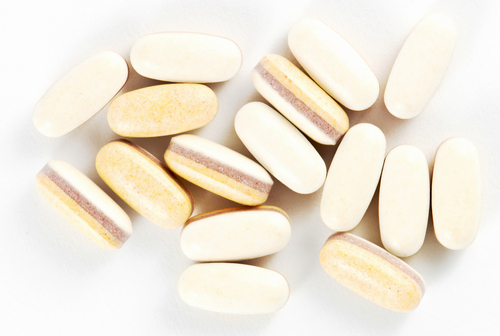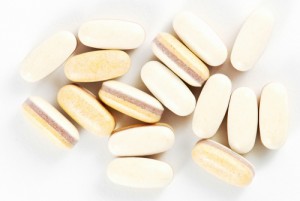Probiotics Investigated in SSc Patients with GI Symptoms

 Federal University of São Paulo recently initiated a phase 3 clinical trial evaluating the use of probiotics in patients with systemic sclerosis (SSc) to determine the efficacy and safety of treating gastrointestinal symptoms of SSc. As an autoimmune disease, SSc may benefit from probiotics due to their ability to boost the innate and acquired immune system responses.
Federal University of São Paulo recently initiated a phase 3 clinical trial evaluating the use of probiotics in patients with systemic sclerosis (SSc) to determine the efficacy and safety of treating gastrointestinal symptoms of SSc. As an autoimmune disease, SSc may benefit from probiotics due to their ability to boost the innate and acquired immune system responses.
The trial will be placebo-controlled, double-blinded, and randomized. Officially titled “Effects of Probiotics on Gastrointestinal Symptoms and on the Immune System in Patients With Systemic Sclerosis: a Randomized Double-blind Placebo-controlled Clinical Trial,” the trial was listed on clinicaltrials.gov in mid-November, and patients will begin enrolling in December.
Both men and women, with or without SSc, will be enrolled in the study, as results will be compared between SSc and healthy individuals. Patients with gastrointestinal reflux, bloating, diarrhea, and constipation related to SSc will be included, but those with systemic lupus erythematosus, polymyositis/dermatomyositis, and rheumatoid arthritis will be excluded.
Treatment will consist of 1 gram of probiotic given orally once a day. The probiotic combination consists of Lactobacillus paracasei, Lactobacillus rhamnosus, Lactobacillus acidophillus, and Bifidobacterium lactis. Alternatively, a placebo containing 1 gram of maltodextrin will serve as a control.
The idea behind using probiotics to alleviate gastrointestinal symptoms in patients with SSc lies in the effect on T-helper cells, the key constituents of cellular immunity. Along with SSc often comes a switch from regulatory T-cells to Th17 cells and from Th1 cells to Th2 cells. Probiotics modulate the immune system and may restore the balance in cell types and their secreted protein signaling mediators.
To evaluate the effects of treatment, patients will be given the scleroderma Health Assessment Questionnaire (sHAQ) at baseline and at four and eight weeks following the start of treatment. Additionally, cell types and secreted proteins will be measured using flow cytometry and serum levels assessment.
Hospital São Paulo is both sponsoring and hosting the trial. The only listed location is in the Systemic Sclerosis Outpatient Clinic of Hospital São Paulo. The lead investigator is Dr. Cristiane Kayser, an associate professor at the Federal University of São Paulo. It is estimated the study will be completed in January 2016.






